Suzanne Vega - Interview
by Lisa Torem
published: 19 / 6 / 2015
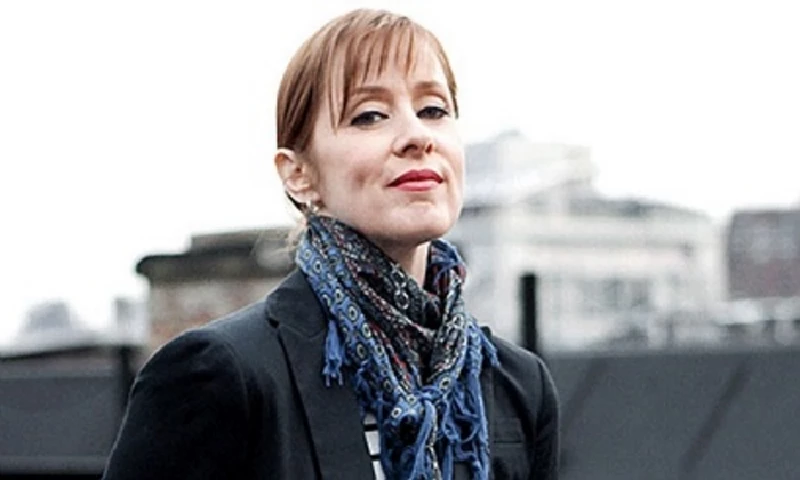
intro
Suzanne Vega chats to Lisa Torem about her timeless, self-titled 1985 debut album, love of bossanova and upcoming UK tour
Suzanne Vega’s evocative voice and captivating themes triggered her career as a unique singer-songwriter in the mid-1980s. When her self-titled debut was released, it went platinum in the UK. Her next project, the touching single ‘Luka’(Solitude Standing), about an abused boy, cultivated a huge following and received three Grammy nominations. In 2001, Songs in Red and Grey also garnered critical acclaim. ‘Beauty and Crime’, in 2007, was a deeply personal recording inspired by New York City sights and sounds. A native New Yorker, Vega stretched the cognitive envelope with dramatic imagery and lush melodies. In 2010, she began creating her Close-Up series, which included four recordings that reimagined previously written material. A major surprise earlier in her career occurred when two British producers, DNA, sampled her a cappella song, ‘Tom’s Diner’ on a bootleg recording. An intrigued Vega recognized that this contemporary version reached a new audience. She supported the release of the record and continued to explore diverse arrangement styles for her subsequent albums. Currently Suzanne is busy writing original music for ballet, promoting a biographical play and getting ready for a UK tour with her guitarist/musical director, Gerry Leonard (Bowie). In her second interview with Pennyblackmusic, she discusses working with her daughter, Ruby, finding solace in hectic New York City, her joy of performance and her admiration of certain political leaders. PB: Hi Suzanne. You have stated that you were influenced by Carlos Jobim and I have noticed a lot of Latin influence in your music, such as ‘Caramel' from Nine Objects of Desire. What kind of influence has the Brazilian composer had on your writing? SV: Oh, I loved his music...I was born in 1959. Bossanova hit and ‘The Girl From Ipanema' – I was probably five or six-years-old when it was being played on the radio. I loved the sound of Astrid Gilberto’s voice and the gentle rhythms and I spoke Spanish as a child so I liked this other language that sounded so similar to Spanish, but had its own lilt to it. It’s very beautiful, poetic and sensual and it was the music that I listened to all the way up to my teenage years when I was starting to write my own songs. I just couldn’t get enough. PB: You’ve written from so many different perspectives. How much do you play out a character in your imagination before you actually create the song? SV: Oh, I kind of feel it from the beginning. If I feel a kinship with the character, I feel it pretty much right away. I think, ‘ah, I get this. This is something that I can really relate to’ and usually that happens immediately. That’s where I write the song from, that deep place of connection. PB: I’ve been listening a lot to your debut album. I hear you’ll be celebrating the album on this tour. SV: Gerry (Gerry Leonard, guitarist/musical director, touring partner) and I will cook all that stuff up. It will be great. PB: It seems that your debut was ahead of its time. ‘Cracking’ and ‘Neighborhood Girls’ featured spoken word and I felt this jazzy swing to ‘Freeze Tag’. And although the album was recorded thirty years ago, you still perform songs like ‘Small Blue Thing’ with great affection. It seems like those early songs are still very important to you. SV: Yeah. I’m not one of these people who moves away from earlier stuff. I think of my back catalogue as a giant closet that I pull from, so whatever is my current mood, depending on whether I feel folky or I feel like rocking out, I can pick and choose, depending on what feels current and a lot of it still feels current. The stuff that doesn’t tend to, falls by the wayside. I find that a song like ‘Cracking’ still feels modern to me, even though it’s more than thirty-years-old. PB: From what I’ve read, it took several years for you and your management team to attract major label interest for the debut album. You had played the Greenwich Village clubs and it seems that the labels had typecast you as a folk singer. I think your fans would argue that you cast a much wider net, musically. SV: I did have to break through it, although I did go there. I came down to the village with the idea of playing at Folk City, which is where Bob Dylan had gotten his start, and I came down there with my acoustic guitar. So in some ways, I am a folkie in that old-fashioned sense of standing on a stage with my guitar and telling stories and all that. But even from the very beginning I had never let that define me or limit me, so that’s why I was able to write a song like ‘Cracking’ because I thought, let’s do this. I was influenced by the rock music that I was listening to, by Lou Reed, by New Wave artists and by some degree, the punks, although I don’t shout or scream, but there is a bit of a punk influence in there as well as a minimalist kind of aesthetic. So I sort of let that all seep in, which is what I think you’re supposed to do if you want to be an artist. PB: Your book, A Passionate Eye: The Collected Writings of Suzanne Vega (published in 1999), included three decades worth of your lyrics, prose and an interview with Leonard Cohen. It drew comments online in which fans requested more prose and lyrical material from you. Would you consider publishing more of this kind of work? SV: Yeah, I’d love to. I’m thinking about writing another book, but I need to get some time to do it, but, yeah, it’s definitely moving more from the back burner towards the front burner. There are a lot of burners (Laughs). PB: I was visiting New York recently, and couldn’t help but notice the social and economic contrasts. Although you’ve traveled all over the world, you, and artists like Billy Joel, seem to have a fierce loyalty to the city. New York continues to be your muse after all of this time. SV: Well, I feel like I belong here and it speaks to me. When I walk down the street and even when I feel the problems that go on here, and there are a lot of problems, I feel that I’m part of the workings of New York. I’m here to witness what happens. I’m here to help whenever I can. It’s so deeply part of my own history. Just moving from the terrible neighborhoods of New York to the better neighborhoods has been part of my life’s history, going to the school that I’ve gone through here, being inspired by the institutions, everything from the Met to the New Museum, all that is part of my life and it’s what inspires me. It still speaks to me. I go away from time to time. I’ll go to the ocean or something like that, but I feel like Woody Allen out there. There’s all this grass. I don’t know that landscape so well. One tree really does seem like every other tree and I know that there are people who say, no, no, you’re so wrong. An Elm is very different from a Maple. I’m like, okay, whatever. I like to go for a walk in nature, but then I like to come back to New York. PB: Are you able to find solitude in that environment? It seems like it’s absolutely packed all the time. SV: If you’ve grown up here, you learn to carry it with you. When you sit on the subway, which I do, everyone’s into their own little solitude world and I still feel, you’re in public, but you’re still kind of private. You sit at a diner, drink coffee and you write in your notebook. Everyone carries their privacy with them because it’s all so public. PB: For your upcoming tour in the UK, what are you most looking forward to? SV: Just getting out there and playing. I love that moment in the day when dinner’s finished and I go into the dressing room and I put on my makeup and decide, what is the costume of the day? I love it. It’s transformative and I miss it when I’m not out there playing. It’s just not the same thing. There’s not that same kind of moment in the day when you put on the costume and go out to do the show. PB: You performed with you daughter, Ruby, at the New York City Winery. Is performing with your daughter something that you’d like to do more frequently? SV: I love performing with my daughter. I wish we could do it more often. She picks and chooses where she wants to come, so the rest of the time she’s off doing cancer research or working in the laboratory or working on her own music. I feel privileged when she joins me but I can’t promise that it’s going to happen more and more. It’s very rare when she comes out. PB: You’ve got to grab it when you can. SV: Yeah, you’ve got to grab it. If you see she’s on the bill, come running out. PB: On your last album, Tales From the Realm of the Queen of Pentacles, you dedicated the song ‘Horizon’ to Vaclav Havel (the first elected president of the Czech Republic, who also wrote plays, memoirs and essays.) and you also invited an orchestra from Prague to be on the record. What was your connection? SV: I had the privilege to know Vaclav Havel a bit in the last years of his life and we had a friendship, which was so lovely. He gave me a copy of his book 'To The Castle', and he would come out to the shows and we would chat a little bit and I really, really liked him. I liked him for what he achieved, I liked him for his intellect and his humour and the fact that he was a playwright and also the president of his country. It was great. My husband is both a criminal defense lawyer and a spoken word poet so I kind of get that combination. What I say in the song, ‘Horizon’ is, he is someone who has lived his life in the spirit of love even though I think he suffered incredibly when he was in jail, he suffered physically, emotionally and mentally, but he was able to maintain his integrity and come out and not only survive but lead a country into freedom, which is so remarkable, and do it with grace and honour, with out a punishing energy. He didn’t turn around and say, we’re going to punish all these Communists. It was like, no, we’re moving forward. And I found all of this to be very inspiring and that’s what I hope to encapsulate in that song. PB: You’ve written from the perspective of different female characters… SV: And men. PB: And men. But if you had to choose one female character that you’ve celebrated in song, which one resonates with you, still? ‘Lolita’ from Nine Objects of Desire (1996) was an intriguing song, for example. SV: I thought it was an okay song when I wrote it. I’m not sure that it stood the test of time. My sister complained about that one and said it was too obvious. It’s not one that most people respond to or ask for. PB: I think it’s a beautiful jazz ballad. That’s my interpretation. SV: Well, that’s cool. I see her as needy. The one that resonates with me, mostly, at the moment, probably because I’ve been doing a lot of research about her for this ballet project, is ‘Calypso’ [from 1987’s Solitude Standing]. If you look at my Facebook page, you’ll see this extraordinary painting of her from 1670, where she’s far from solitary. She actually seems to be in the middle of this wild, debauched orgy with Odysseus and Hermes and all these cherubs frolicking and Gods and Goddesses watching down and she’s got hardly any clothes on and she’s in the arms of Odysseus and she’s looking right into the audience. She’s looking right at the spectators. It’s a very modern perspective and I was so struck by this because I always thought of her as so stoic, mature about the whole thing. She helps him build the ship and gives him food, but in this picture it’s really like sex, drugs and rock ‘n’ roll. You should check it out. It’s funny. So let’s just say Calypso for her resilience and her strength and she offers him her immortality and he says, ‘No thank you, I need to go home. I need to be a human and suffer and live my human life.’ I like her. I have a lot of sympathy for her. PB: What would you say to a woman entering the music business now? SV: The advice is the advice I’ve always had. Develop your own style, figure out what you have to say that’s different than what’s been done before and concentrate on that. Figure out what makes you different than all of the other women and men, anyone else who is out there. What do you really need to say that hasn’t been said before? Work on that and get a good lawyer. Make sure that he looks after everything you do and then get a team of people that you trust and that kind of get you and help you get your message out there. You build your audience one by one. I did it that way. In the beginning I started with a simple, mailing list and now I do it on Face book. If it works for one person, it will work for ten and for one hundred. PB: Is it ever daunting to be a performer, not knowing who is going to be in the audience on any given night? SV: No, No, No. I have no fear of that. I just go out there and perform to whomever is there. I have a certain confidence after all this time. PB: And do you feel that most audiences are receptive to new material or are they looking for a balance? SV: Most people are nervous about new material. When I go to see Leonard Cohen I feel that there are songs that I want to hear and I’ll tolerate some new songs, but I really want to hear the songs I really want to hear. I totally understand that so I tend to do the old material upfront, that way it relieves everybody’s mind. See I’m still doing, ‘The Queen and the Solder’ and I’m still doing ‘Gypsy’. It’s all going to be okay and then I kind of venture on to the weird stuff later on in the show and I try to make it entertaining no matter what, whether it’s old material or new. But I kind of get that bit, although in this show I do three new songs right upfront. They’re kind of the folkier songs and people seem to really like them. With this particular group of songs, people seem to really like the new material but I’m very careful about how I present them. PB: On your website, you’re asking fans to send in videos singing, ‘I Never Wear White’. SV: I was really struck by people saying, ‘Oh, my six-year-old daughter was doing this in the kitchen the other day and it was so cute.’ And I saw this film of this little girl singing, ‘I Never Wear White’ and she put so much energy and attitude into it and a wide variety of people wrote to me, saying that they really connect to that song. That’s what I’m hoping to get, just the widest variety of human life. Everyone who writes to me, saying that they really love that song, I really want to see you out there. I want to see you singing it. PB: That sounds like a really fun way to engage your fans. I’m going to borrow one of your song titles for this last question: If you had a ‘book of dreams’, what would it include? SV: I want to finish all of my current projects. I’d love to see a couple of songs become a ballet of some sort. That’s something I’ve been working on with the NYU Center for Ballet and The Arts. I’m really hoping that’s going to come to fruition. I’m about to go to a residency at a place called Hedgebrook to finish a play that I wrote. I’m hoping to see that up and on its feet. It’s a play I wrote about the life and work of the writer, Carson McCullers. So that’s been in the work for ages and I’d like to see that up and toddling away. I’d like to write a book again. And one of these days, I’ll make a new album when I’m finished with all of these other things. PB: Thank you. UK Tour Dates : Tuesday 16th June Liverpool Philharmonic Hall Wednesday 17th June Bristol Colston Hall Thursday 18th June London Union Chapel Friday 19th June London Cadogan Hall Sunday 21st June Basingstoke Anvil Monday 22nd Birmingham Town Hall
Band Links:-
https://www.suzannevega.comhttps://www.facebook.com/SuzanneVega
https://www.instagram.com/therealsuzannevega/
Have a Listen:-
Picture Gallery:-
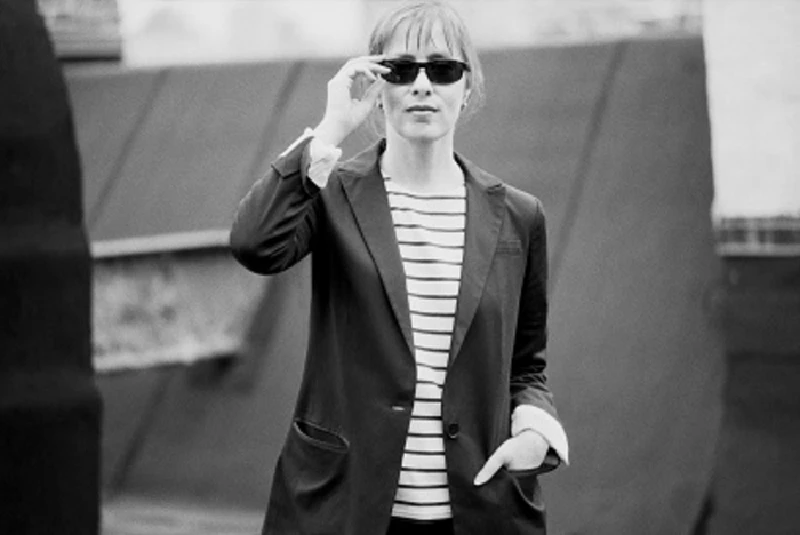
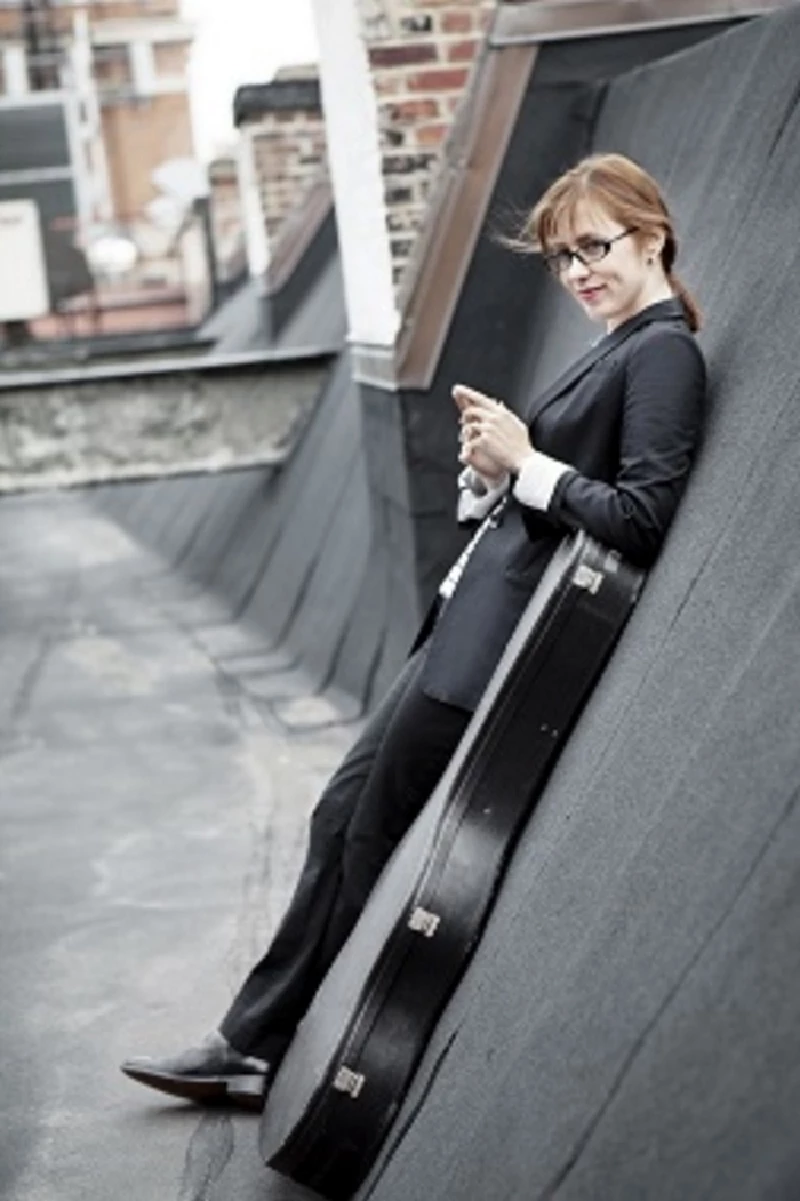
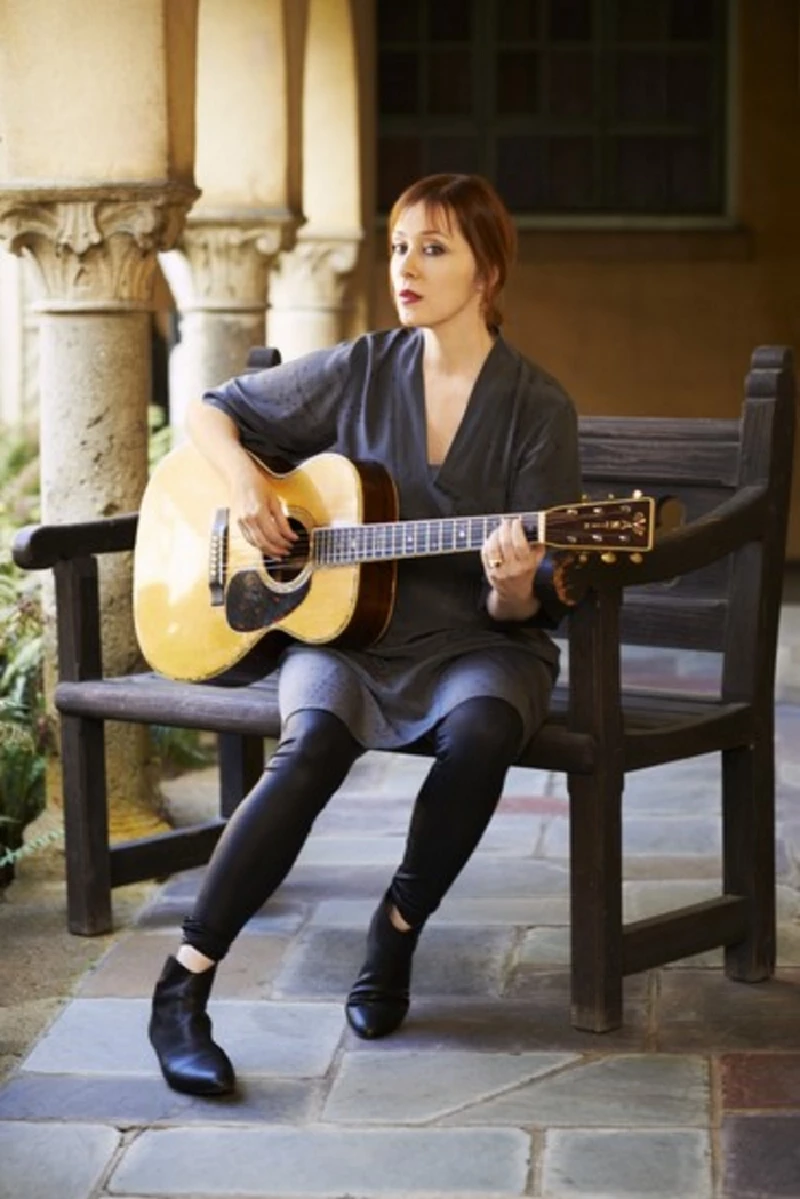
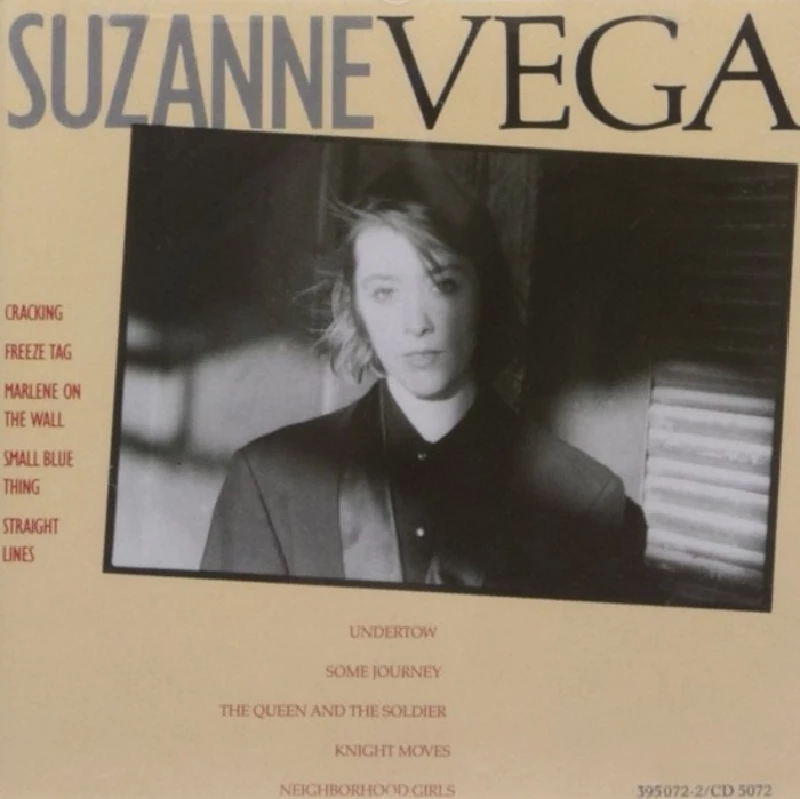
interviews |
|
Interview (2016) |
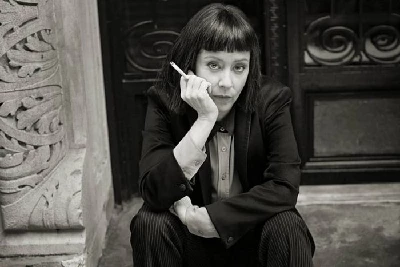
|
| Lisa Torem talks to New York singer-songwriter Suzanne Vega about author Carson McCullers, the new album which she inspired and her upcoming tour |
| Interview (2014) |
| Interview (2012) |
live reviews |
|
Old Town School of Folk Music, Chicago, 1/5/2022 |
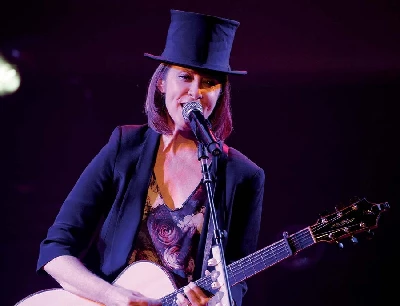
|
| Lisa Torem enjoys Suzanne Vega's much-awaited set at Chicago's Old Town School. which includes hits and selections from her one-woman show about novelist Carson McCullers. |
| S.P.A.C.E., Evanston, Illinois, 22/2/2013 |
soundcloud
reviews |
|
Flying With Angels (2025) |
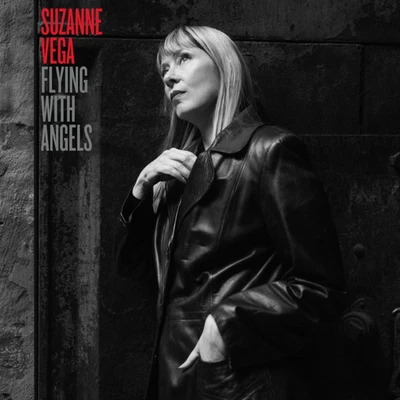
|
| Outstanding first album in nine years from Suzanne Vega which breaks new ground |
| Lover, Beloved: Songs from an Evening with Carson McCullers (2016) |
| Close-Up, Vol. 1-Love Songs (2010) |
most viewed articles
current edition
John McKay - InterviewCathode Ray - Interview
Robert Forster - Interview
When Rivers Meet - Waterfront, Norwich, 29/5/2025
Spear Of Destiny - Interview
Fiona Hutchings - Interview
Carl Ewens - David Bowie 1964 to 1982 On Track: Every Album, Every Song
Chris Wade - Interview
Shrag - Huw Stephens Session 08.12.10 and Marc Riley Session 21.03.12
Brian Wilson - Ten Songs That Made Me Love...
previous editions
Heavenly - P.U.N.K. Girl EPBoomtown Rats - Ten Songs That Made Me Love....
Manic Street Preachers - (Gig of a Lifetime) Millennium Stadium, Cardiff, December 1999
Allan Clarke - Interview
Oasis - Oasis, Earl's Court, London, 1995
Barrie Barlow - Interview
Beautiful South - Ten Songs That Made Me Love...
Pixies - Ten Songs That Made Me Love...
Chuck Prophet - Ten Songs That Made Me Love...
Dwina Gibb - Interview
most viewed reviews
current edition
Peter Doolan - I Am a Tree Rooted to the Spot and a Snake Moves Around Me,in a CircleVinny Peculiar - Things Too Long Left Unsaid
Garbage - Let All That We Imagine Be The Light
Vultures - Liz Kershaw Session 16.06.88
John McKay - Sixes and #Sevens
Little Simz - Lotus
HAIM - I Quit
Pulp - More
Lapsley - I'm a Hurricane, I'm a Woman In Love
Billy Nomates - Metalhorse
Pennyblackmusic Regular Contributors
Adrian Janes
Amanda J. Window
Andrew Twambley
Anthony Dhanendran
Benjamin Howarth
Cila Warncke
Daniel Cressey
Darren Aston
Dastardly
Dave Goodwin
Denzil Watson
Dominic B. Simpson
Eoghan Lyng
Fiona Hutchings
Harry Sherriff
Helen Tipping
Jamie Rowland
John Clarkson
Julie Cruickshank
Kimberly Bright
Lisa Torem
Maarten Schiethart